Anxiety and Depression in Kids: A Parent’s Survival Guide with Natasha Daniels
There is a great deal of awareness surrounding autism and ADHD in children. What has not been equally addressed are anxiety and depression in kids. Many children suffer in silence and parents don’t understand what’s wrong.
Today we are going to talk about how to identify and differentiate between depression and anxiety, signs and behavior patterns to look out for, and tools to help us teach children how to cope.
Natasha Daniels is a child therapist who specializes in anxiety and OCD. She is the bestselling author of Anxiety Sucks! A Teen Survival Guide and How to Parent Your Anxious Toddler. Her work has been featured on various sites including Huffington Post, Scary Mommy and The Mighty. She’s a mom to three kids who have anxiety issues and her mission is to create support for parents through her private practice, podcast, videos, and online courses.
The worst thing to do if you suspect your child may have a problem with anxiety and depression is avoid it. Learn how to tackle this problem head on so that you and your children are empowered to deal with anxiety and depression in a proactive way.
Avoidance is the food of anxiety and depression.
Natasha Daniels
Natasha Daniels is a child therapist who has worked with children, teens and families for over 16 years. With her raw, direct approach to anxiety, Natasha has helped thousands of children, teens and parents in both her practice and through her writing.
Natasha is passionate about helping children and teens with anxiety and OCD. When she is not working in her private practice, you can find her writing about anxiety on her site AnxiousToddlerstoTeens.com, creating podcast episodes on the AT Parenting Survival Podcast, making Youtube videos on her channel Ask the Child Therapist and teaching in her online classes at http://anxioustoddlers.teachable.com.
Natasha lives in Phoenix, Arizona with her husband and three children.
We think that to acknowledge anxiety and depression is to acknowledge weakness.
What You’ll Learn
- The difference between anxiety and depression
- The genetic and physiological aspects of anxiety and depression (it’s out of the child’s control)
- How to identify if your child has a problem
- What are other kids comfortable with doing that he/she is not?
- How much is the fear or depression getting in the way of his/her life as well as the family’s?
- Is your child acting out in unusual, irrational ways?
- Is there a change in the pattern of his/her behavior?
- Trusting your parenting gut
- Why friends, family, and doctors try to normalize the behavior and blow it off
- The difference between the signs of anxiety and depression in boys and girls
- Boys will not look anxious or depressed. They will look angry, irritate, annoyed, and defiant.
- Girls have a bigger emotional vocabulary, but will tend to be avoidant and spend time alone.
- Parent’s intuitive response is to use discipline, but this is the opposite of what the child needs
- Parents need to pause instead of becoming authoritative
- Why you must become inquisitive when your kid blows up or melts down for something that seems like no big deal
- How to tell if you child is acting out to be manipulative or if they genuinely have a problem
- The mistake of being overly protective and coddling with anxious and depressed kids
- Many parents blame themselves when the cause is genetic
- Being up front with your kids about their diagnosis
- Teaching kids to accept that they are going to feel anxious or depressed sometimes, but that it will always pass
- Allowing kids to become detectives of their own behavior
- Why a therapist should be the first stop if you suspect your child may have anxiety and depression, not the last stop
- Why you shouldn’t rely on your pediatrician in the case of mental health
- How to choose the right therapist that both you and your child feel comfortable with
- How to refer to a counselor or therapist as a “feelings teacher” or “feelings coach” to make it easier for kids to understand
- Framing therapy as an “us” activity that encompasses the whole family instead of just on the child alone
- How much you should be involved in the therapy of your child
- The first step when you suspect your child may have anxiety or depression—Educate yourself and observe. Read books, listen to podcasts. Meanwhile, watch your child’s avoidance and moods from an objective point of view. Ask them if they feel overwhelmed.
- When and how to use medication and behavioral therapy
MENTIONED EPISODE: How to Parent Kids with Anxiety and Depression with Larry Hagner
Like the show? Leave an iTunes review.
If you’re enjoying the show, we encourage you to leave an itunes review.
We read reviews on the show every week. The next one might be yours!
Thanks for the support.
AT Parenting Survival
Resources
Fill out an application for The Dad Edge Alliance
==>NEW!!<== Grab a copy of The Dad’s Edge AUDIOBOOK on iTunes or Audible
GRAB A COPY OF THE DAD’S EDGE HERE
Join our Dad Edge Group on Facebook Request Entry Here
We have new Dad Edge T-Shirts! Grab one HERE
Download a free chapter from: THE DAD’S EDGE on UNLIMITED PATIENCE HERE
Check out this free resource on: CONNECTION WITH YOUR SPOUSE
Download this free resource on: CONNECTION WITH YOUR KIDS
Links
- Amazon Bestselling Book: The Dad’s Edge – 9 Simple Ways to Have: Unlimited Patience, Improved Relationships, and Positive Lasting Memories
- Larry’s New Course: The Dad’s Edge – 6 Strategies to Achieve: Unlimited Patience, Improved Relationships, and Positive Lasting Memories
- Larry’s Twitter Page
- Larry’s Facebook Page
- Larry’s Instagram Page
Hungry for more out of life?
Become one of the 330 men of The Dad Edge Alliance
What did you think of the show?
What was your biggest take away?
Tag us when you share on social media!
#TheDadEdge
Twitter @gooddadprojct
Instagram @thedadedge
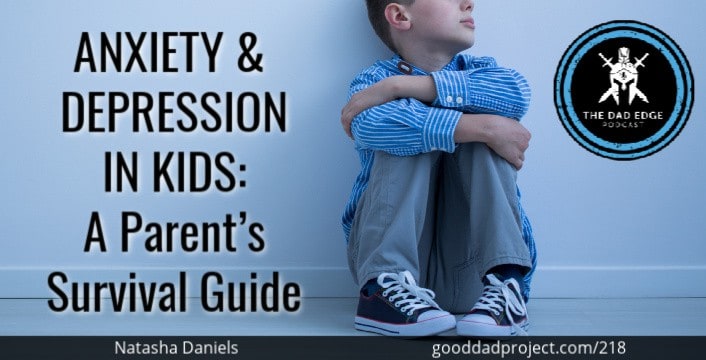




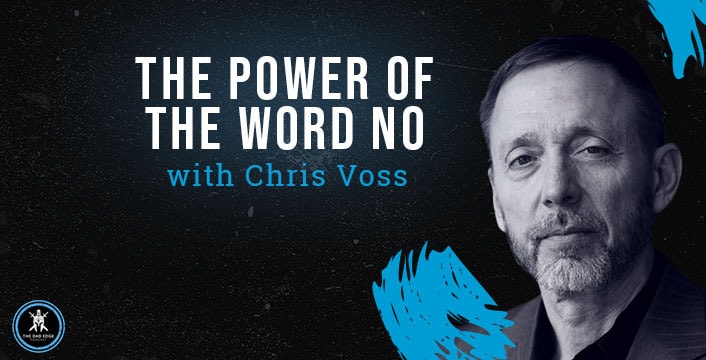
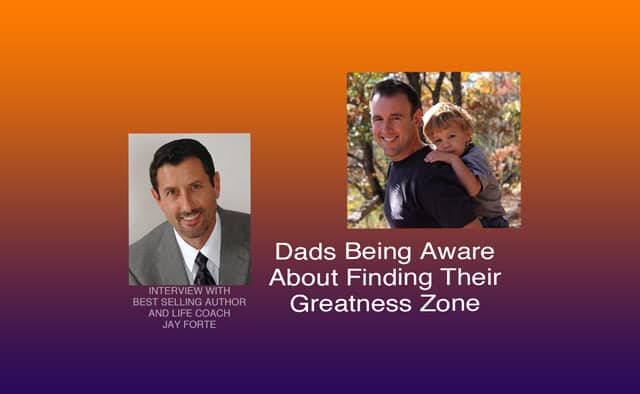
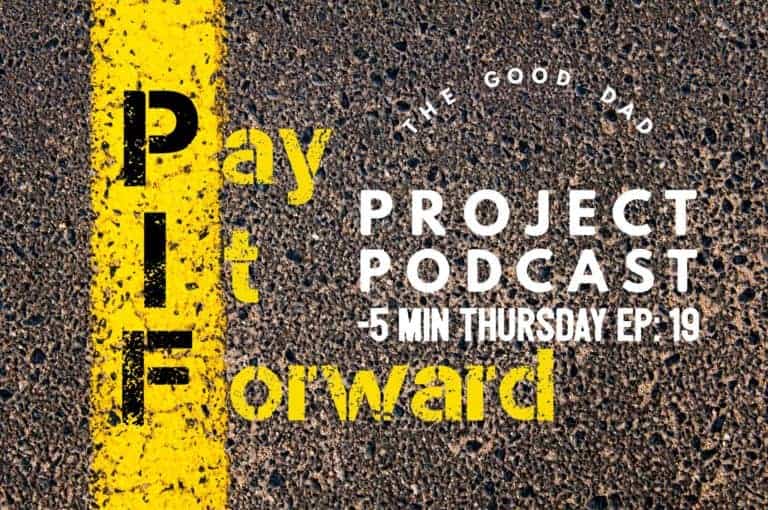

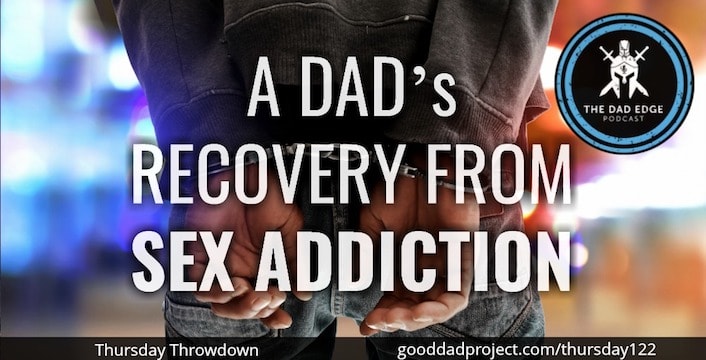
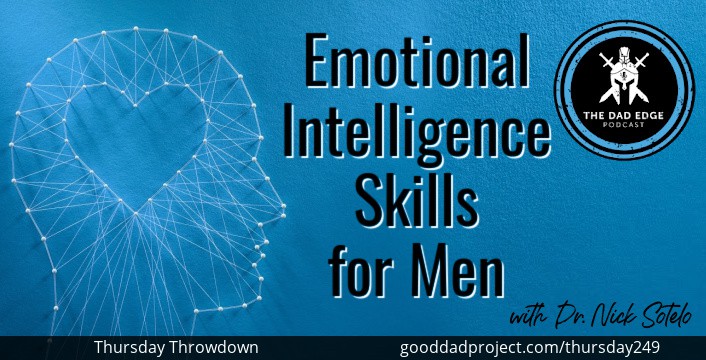


One Comment